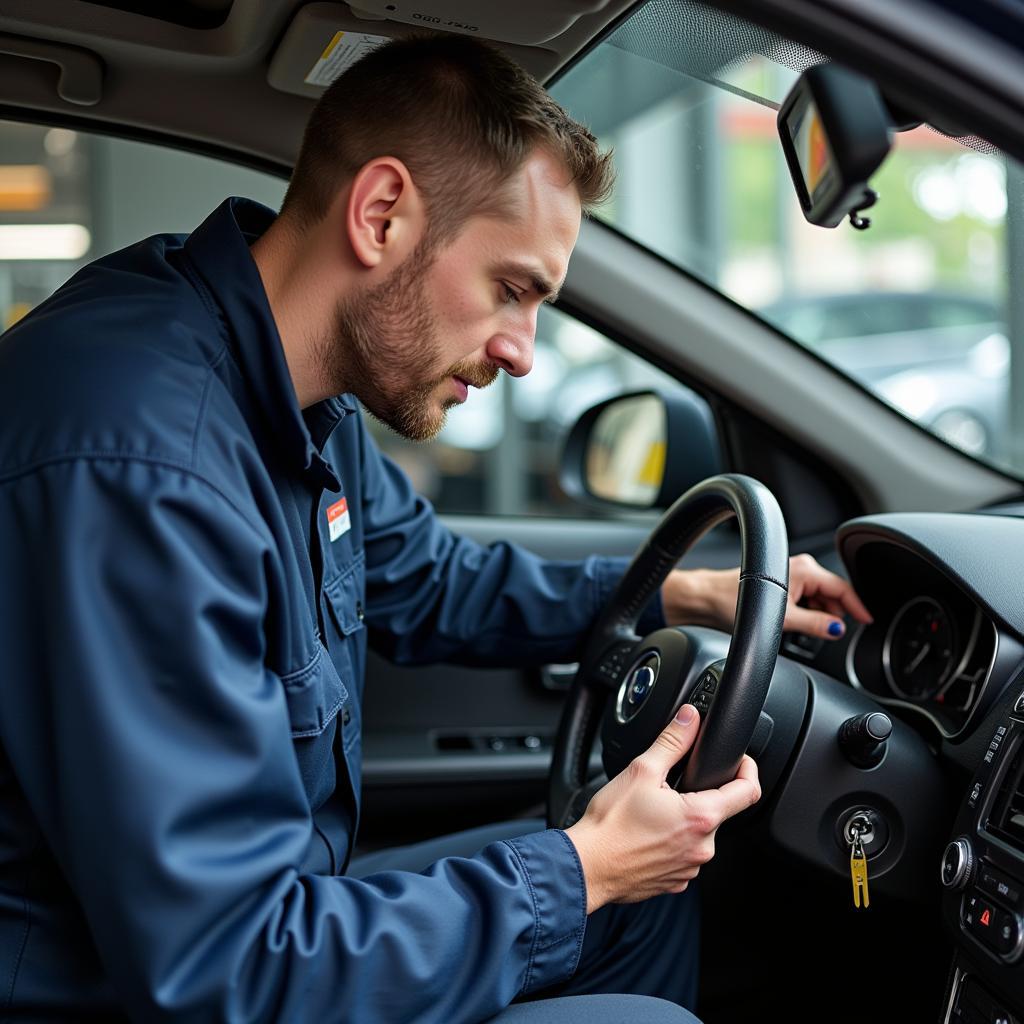The moment you see that dreaded brake warning light illuminate on your dashboard, a wave of panic might wash over you. Rightfully so! Your vehicle’s braking system is critical for your safety and the safety of others on the road. But before you jump to conclusions, it’s essential to understand what that glowing symbol might be telling you.
What Does the Brake Warning Light Mean?
The brake warning light serves as your car’s way of communicating a potential issue within the braking system. While it can signal a serious problem, it doesn’t always mean complete brake failure is imminent. Here’s a breakdown of the common reasons your brake warning light might be on:
-
Low Brake Fluid: One of the most frequent culprits is low brake fluid. Your braking system operates on hydraulic pressure, and brake fluid is the lifeblood of this system. A leak in the brake lines, a worn-out master cylinder, or even worn brake pads can lead to low fluid levels.
-
Engaged Parking Brake: It might sound obvious, but sometimes the simplest explanation is the right one. If you’ve left your parking brake partially engaged, the brake warning light can illuminate.
-
Worn Brake Pads: Most modern vehicles have sensors within the brake pads that trigger the warning light when the pads wear down to a certain level. This is a helpful reminder that it’s time for a brake job.
-
ABS Issue: Your Anti-lock Braking System (ABS) plays a vital role in preventing wheel lockup during hard braking. If the ABS module detects a malfunction, it can trigger the brake warning light.
-
Other Brake System Malfunctions: While less common, other brake system components, like the brake booster or proportioning valve, can also malfunction and trigger the warning light.
What to Do When the Brake Warning Light Comes On
Seeing that light doesn’t automatically mean slamming on the brakes and pulling over to the side of the road (unless your brakes are actually failing). However, it’s crucial to take immediate action to diagnose and address the issue:
-
Safely Pull Over and Check Your Parking Brake: Find a safe location to pull over and double-check that your parking brake is fully disengaged. If the light turns off, you’re likely in the clear.
-
Assess Your Brake Fluid Level: If the parking brake isn’t the issue, carefully pop the hood and locate your brake fluid reservoir. Most reservoirs have a “Min” and “Max” line. If the fluid level is below the “Min” line, you’re low on brake fluid.
-
Contact a Mechanic or Dealership: If your brake fluid is low, adding fluid might temporarily solve the problem, but it’s crucial to have a professional diagnose the cause of the leak. If the brake fluid level is adequate, and the parking brake isn’t the issue, you’ll definitely need a professional diagnosis.
Remote Diagnostics and Software Solutions
In our technologically advanced world, remote diagnostics and software solutions are revolutionizing how we approach car repairs, especially for complex systems like brakes.
-
Remote Diagnostics: Many car manufacturers and specialized service providers now offer remote diagnostic services. By plugging a device into your car’s OBD-II port, a technician can remotely access your vehicle’s computer system, read error codes, and often pinpoint the root cause of the brake warning light. This can save you a trip to the mechanic and provide valuable insights before any physical inspection.
-
Software Updates and Reprogramming: Modern cars are essentially computers on wheels. Software glitches or outdated software within your car’s braking system can sometimes trigger warning lights, even if there’s no physical problem. Remote software updates and reprogramming can address these issues, often resolving the problem without the need for any physical parts replacement.
If you’re experiencing a brake warning light issue, consider contacting a service provider specializing in remote diagnostics and software solutions. This can offer a convenient and efficient way to diagnose and potentially resolve the problem.
Don’t Ignore the Warning
Ignoring a brake warning light is incredibly risky. While it might be tempting to hope it’s a minor issue, neglecting your brakes can lead to costly repairs down the line and, more importantly, compromise your safety. If your brake warning light comes on, take action promptly to have it diagnosed and addressed by a qualified mechanic or service provider.
Remember, a little preventative maintenance goes a long way in keeping you safe on the road.

